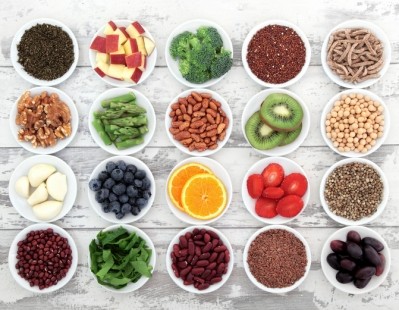ScanUp: The app that tells consumers if food is 'ultra-processed' and helps manufacturers reformulate

Founded by business strategist Caroline Péchery and IT engineer Adrien Dumitresco, ScanUp is a free-to-use, consumer-facing app that provides information on the degree of food processing and healthiness of a product, awarding a score ranging from ‘unprocessed’ to ‘ultra-processed’.
The duo launched the app in 2017 so that consumers could “make the right food choices”. One year later, ScanUp launched a second service – a platform for
product co-creation between consumers and brands so that consumers can find the unprocessed products they are looking for.
It has also partnered with a number of retailers – Franprix, Carrefour, OOShop and Clac des Doigts – so consumers can compile shopping lists and have them delivered in one click.
The science behind Siga
The concept of ‘ultra-processed’ is more commonly associated with the Nova classification, developed by a team of Brazilian and Canadian scientists and on which Brazil’s national dietary guidelines are based.
Péchery and Dumitresco, however, partnered with Siga to help the public adopt "a balanced and preventative diet”.
Péchery told FoodNavigator: “The Siga score studies in detail the list of ingredients by identifying those which have been transformed, purified or denatured, the possible additives according to their degree of harmfulness by penalising the cocktail effect, and takes into account nutrient thresholds by penalising added sugars or fat, for example.”
Founded by Aris Christodoulou, the Siga project also has the support of a Committee of Scientific and Technical Experts, chaired by Dr Anthony Fardet, senior research scientist in preventive and holistic nutrition at the French National Institute for Agricultural Research (INRA).
The committee also includes Dr Céline Gryson, manager of Nutrifizz Consulting and Dr Sylvie Aynie-Davidou, senior lecturer at the Agrifood Industry Laboratory (CNAM).
According to the Siga website, it was “born from the desire to put into action the international NOVA classification" allowing consumers to choose "more real and healthier products".
“The Siga classification was not developed by the same researchers as for the Nova classification,” Péchery explained. "That said, Siga is based on Nova going into further detail. We are the first and only application to date offering this information to consumers,” she said, adding that she sees ScanUp as in line with and continuing the work of NutriScore, France’s official nutrition logo backed by the government.
“The Nutri-score focuses on assessing the nutritional qualities of the product, fat, saturated fatty acids, sugars, salt, without taking into consideration the list of ingredients as a whole,” she said. “It is thus a more reductionist score which can discriminate certain categories of products but which nevertheless remains an interesting nutritional information for the consumer.”
‘Co-creating’ new products
ScanUp’s database currently has around 450,000 products listed with 70,000 active users.
Product scores are calculated by applying the Siga classification to product information taken from the French version of Open Food Facts, a free, non-profit
and collaborative website.
ScanUp says user data it collects is used only to power its own algorithms.
“Our business model is exclusively B2B,” Péchery said. “Manufacturers pay us to have the opportunity to co-develop their future products with our users.”
According to the co-founder, the main goal of ScanUp is to encourage healthy reformulation.
"We want to bring transparency to consumers on the degree of processing of products to enable them to choose the products of better quality. In parallel, we strongly encourage manufacturers to reformulate their products and we support them in this strategy.”
“When products are ultra-processed, manufacturers may choose to reformulate their products to remove ultra-transformation markers such as additives or purified and denatured ingredients. Once the product is reformulated, the Siga score is then recalculated and updated on the application.”
“It may take time but I think things are moving in the right direction and in favour of better product quality,” she said, adding that ScanUp is “in regular contact” with various manufacturers.
A lesser processed pizza
The latest product it co-created with retailer Franprix and ScanUp users – a ‘French-style’ pizza with grilled courgettes and onions – will hit shelves next month (January 2019) in the hot snack section of select Franprix stores.
Cleaning up the ingredient list of a pizza involved “reworking the dough”, removing added sugars from the dough and tomato sauce as well as the starch from the mozzarella cheese.
There are other projects in the pipeline too. “We have four co-creation projects for the year 2019 with this brand, and dozens of other projects with other brands,” said Péchery.
The app can be used anywhere in the world but is currently available only in French, meaning most users are in France, Belgium and Switzerland. However, the developers plan to launch in other languages by 2020 with Spain, which has just adopted the Nutri-Score, a key market.
The official SIGA chart is due to be published on its website shortly.
The clean label push
Many food makers in Europe and Western markets are moving towards cleaner labels.
Guillaume Hurtrez, quality manager at French supermarket Auchan, gave a presentation at SIAL in Paris this year on its ‘retail health’ programme with an example of a reformulated product.
Before:
Ingredients: Broccoli (91%), dehydrated potatoes (potatoes, emulsifier: mono- and diglycerides of fatty acid, stabiliser: diphosphates, antioxidants: fatty acid esters of ascorbic acid, citric acid, preservative: sodium disulphate), cream, [contains milk], salt, malted barley flour [contains gluten], pepper.
After:
Ingredients: Broccoli (96%), crème fraiche [milk], salt, pepper.
Siga took to Twitter during SIAL to praise Auchan for its new product, whose score goes from a C3 ‘ultra-processed product, category 3’ to a B1 ‘processed, balanced product’, worthy of a ScanUp Gold medal.





























